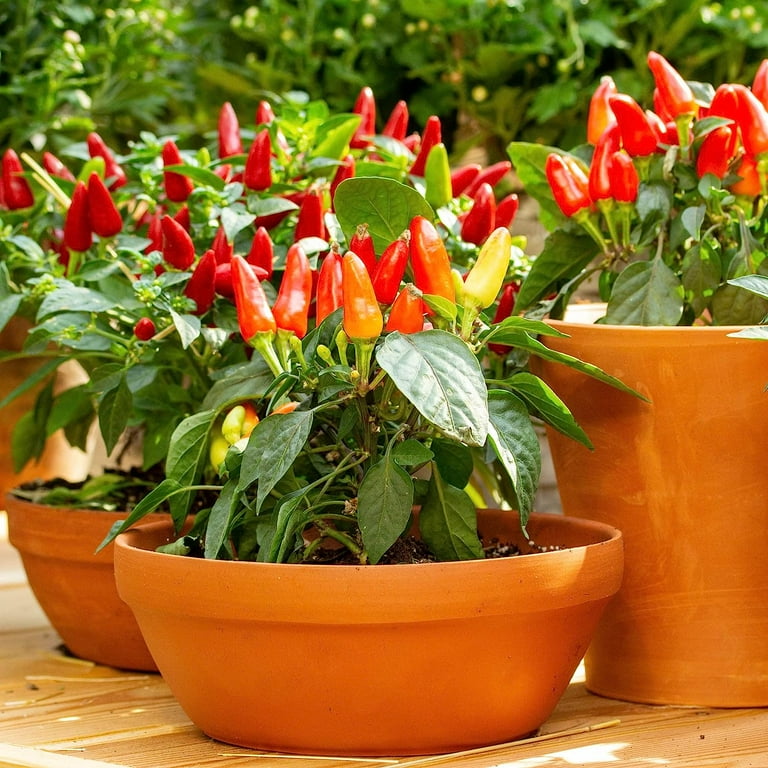Best Fertilizers for Peppers: A Comprehensive Guide to Boost Your Harvest
Best Fertilizers for Peppers: A Comprehensive Guide to Boost Your Harvest
Blog Article
How Fertilizers Play a Critical Role in Cultivating Healthy and Plentiful Pepper Crops
Plant foods serve as the backbone of effective pepper growing, offering a strategic strategy to nourishing the soil and cultivating ideal plant growth. The detailed dance between crucial nutrients and the pepper plants' physical processes emphasizes the critical role that plant foods play in guaranteeing a plentiful harvest.
Value of Nutrient-Rich Fertilizers
The usage of nutrient-rich plant foods plays an essential role in improving the performance and quality of pepper crops in modern-day farming practices. Potassium, nitrogen, and phosphorus are primary nutrients that are important for the development and growth of pepper plants.
Insufficient degrees of these nutrients can result in stunted development, reduced returns, and vulnerability to illness (best fertilizers for peppers). Nutrient-rich plant foods supply a targeted solution to make certain that pepper plants obtain the required aspects for ideal growth and productivity. Additionally, these fertilizers aid enhance soil fertility gradually, producing a sustainable environment for long-term pepper farming
Enhancing Plant Development and Growth
To optimize plant growth and development in pepper plants, critical application of nutrient-rich plant foods is necessary. Fertilizers play an important role in enhancing the total health and wellness and productivity of pepper plants by providing them with essential nutrients that may be lacking in the soil. Nitrogen, phosphorus, and potassium are key macronutrients called for in large amounts by peppers for robust growth. Nitrogen help in leafy environment-friendly growth and overall plant vitality, phosphorus supports origin development and flower formation, while potassium adds to disease resistance and fruit top quality.
Along with these macronutrients, micronutrients such as iron, magnesium, and zinc are additionally crucial for the proper performance of numerous plant processes. Iron, for example, is necessary for chlorophyll production, which is crucial for photosynthesis and total plant growth. Zinc plays a vital duty in enzyme activity and hormone synthesis, affecting plant development and development at a mobile level. Magnesium is vital for the development of chlorophyll and overall energy transfer within the plant.

Boosting Disease Resistance With Fertilizers
By purposefully including targeted plant foods, farmers can reinforce the illness resistance of pepper crops, guaranteeing ideal plant health and productivity. Plant foods having crucial nutrients like phosphorus, nitrogen, and potassium play a vital function in strengthening pepper plants' immune systems, making them more resistant to different illness.

Making The Most Of Pepper Yield Via Fertilization
Making use of a balanced fertilizing technique why not try here is essential to achieving optimum pepper yield and making certain ideal crop productivity. By giving peppers with the best nutrients at the right time, farmers can dramatically improve their return capacity. Potassium, nitrogen, and phosphorus are important aspects for pepper growth, with nitrogen aiding in fallen leave and stem growth, phosphorus sustaining origin development and blossom development, and potassium promoting general plant health.
To make the most of pepper yield, it is crucial to perform soil examinations to identify existing vitamins and mineral levels and determine any kind of deficiencies that need to be attended to. Based on these outcomes, farmers can create a tailored fertilization strategy that fulfills the specific requirements of their pepper plants. In addition, proper fertilizing strategies such as split applications throughout the growing season can guarantee continual vitamins and mineral availability for the plants.

Lasting Plant Food Practices for Peppers
In considering lasting fertilizer methods for peppers, it is necessary to concentrate on lasting dirt health and environmental stewardship along with making the most of plant productivity. Lasting plant food practices intend to keep or enhance soil fertility while minimizing negative ecological impacts. One crucial approach is using organic fertilizers such as garden compost, manure, or cover plants, which not only give necessary nutrients to the peppers but additionally add to soil framework and microbial task. These natural options assist construct natural matter in the dirt, boosting its capability to retain water and nutrients, thus supporting long-lasting crop health and wellness and strength.
Additionally, accuracy agriculture strategies, such as soil testing and targeted nutrient applications, can aid optimize fertilizer usage, making sure that peppers receive the nutrients they need without excess runoff right into waterways. This not only benefits the environment by minimizing contamination however likewise conserves expenses for farmers by reducing waste. By adopting sustainable plant food practices, pepper growers can protect the health and informative post wellness of their crops, dirt, and bordering ecosystems for future generations.
Verdict
Finally, plant foods are important for growing healthy and balanced and bountiful pepper plants. best fertilizers for peppers. They give needed nutrients for plant development and development, boost disease resistance, and optimize yield. By applying lasting fertilizer methods, farmers can make certain the long-lasting health and wellness of their pepper crops and add to a much more environmentally-friendly and effective farming system
The elaborate dancing in between vital nutrients and the pepper plants' physiological processes underscores the critical duty that fertilizers play in ensuring a plentiful harvest.To maximize plant growth and advancement in pepper crops, tactical application of nutrient-rich fertilizers is important. click for more Plant foods play an important function in improving the overall health and efficiency of pepper plants by providing them with crucial nutrients that may be doing not have in the dirt.By strategically including targeted plant foods, farmers can boost the disease resistance of pepper crops, making sure ideal plant wellness and performance. Fertilizers including crucial nutrients like phosphorus, potassium, and nitrogen play a critical role in reinforcing pepper plants' immune systems, making them a lot more resilient to different illness.
Report this page